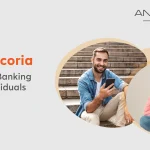An overdraft is a financial tool that provides flexibility in managing your finances. In case you are dealing with unexpected expenses or you simply need a backup for your daily transactions, an overdraft can be a valuable resource. In Cyprus, an overdraft is a popular banking product that helps individuals and businesses handle their finances and maintain financial stability.
What is an overdraft?
In simple terms, an overdraft is essentially a short-term credit facility that is linked to your Current Account, either you are an Individual or you own a Business. This allows you to spend more money than you have in your account, up to a point, which is pre-approved. When your account balance drops to zero, the overdraft is activated and you have more money at your disposal. An overdraft can act like a safety net that can cover unexpected expenses or cash flow needs without the need to go through the process of applying for a traditional loan. Nevertheless, excess is not free money and you should consider the overdraft as a short-term loan. It comes with fees, interest rates and the obligation to repay the amount that you borrowed back to the Bank. An overdraft is an essential part of Personal Banking and Business Banking.
What are the types of overdrafts?
Opting for an overdraft can give you options on how to manage your finances, and each Banking Institution has their own rules that apply to this type of facility.
Below you will find the types of overdrafts that the Banking Institutions in Cyprus offer:
Arranged Overdraft
This type of overdraft allows you to spend a specific amount of money that is pre-agreed with your Bank. You can’t go over your overdraft, as it is set to a specific limit. The interest rate you will pay is usually calculated based on the overdraft amount you use. Some Banks may request a monthly fee for this service.
Calculating your overdraft: At Ancoria Bank the overdraft limit amount permitted will be calculated according to your monthly income; up to two monthly salaries with a maximum amount of €10,000. You will be charged at the debit interest rate according to daily balances on a yearly basis.
You can see an example of Ancoria Bank’s Overdraft offer here (for Individuals).
Unarranged Overdraft
This type of overdraft occurs when you spend more than your account balance without prior agreement or approval from your Bank. There are some categories of Current Accounts that have this component. However, keep in mind that this kind of overdraft can cost more than an authorised overdraft, as Banks can charge higher fees and interest rates. Before agreeing to a Current Account make sure you read the terms and conditions carefully. If you think you might need extra cash, consider asking your Bank for an arranged overdraft. Many consumers have this feature even though they rarely use it, just to feel safe that they have some extra money in case they need it.
Business Overdraft
A business overdraft is tailored specifically for businesses. This type of facility can help manage cash flow and cover some short term operational costs, cover for payroll or supplier payments.
Calculating your business overdraft: The overdraft amount will depend on your company’s turnover. Debit interest is charged on daily balances on a yearly basis.
How does an overdraft work?
As mentioned, an overdraft allows you to continue withdrawing money even when the account has no funds in it or has insufficient funds to cover the amount of payment.
But first, you have to apply for an overdraft facility with your Bank. Before you get approved, the Bank will assess your financials and set the limit of your overdraft based on your income and other prerequisites according to the Banks terms and conditions.
Once approved the overdraft is available, as part of your Current Account balance and you can use it whenever you need additional funds.
Keep in mind that when you use the overdraft you will need to repay the borrowed money along with any interest or fees that are applied.
How is an overdraft paid back?
Usually payments are deducted from your account automatically as deposits are made. When money comes into your current account, it pays off the overdraft amount first. Banks often charge overdraft interest. So, make sure to check the terms of the overdraft with your bank.
What are the Eligibility Criteria for Overdrafts in Cyprus?
While the eligibility criteria may differ among Banking Institutions in Cyprus, there are some common factors to consider. Most Banks will perform a credit check to determine whether you are a trustworthy borrower. A good credit history usually improves your chances of getting approved. You typically need to be at least 18 years old, have a Current Account with the Bank and show proof of a regular income. It is best to check the specific eligibility criteria with your chosen Bank before applying for an overdraft. Knowing these details can help you have a better chance of approval and make smarter financial choices.
What are the benefits of having an overdraft?
- Flexibility: Overdrafts provide instant access to money without the need for a loan application that can be time consuming.
- You pay interest on the money you use: If you need only a portion of the allowed overdraft, you will pay interest only for that amount, making the overdraft facility more cost-effective.
- Emergency fund: You can use the overdraft as an emergency cushion for unexpected expenses like car repairs, hospital visits, or home appliances.
- Cash flow: For businesses, an overdraft can help fill in the cash flow gaps, ensuring the smooth continuance of operations, such as with unexpected expenses like equipment repairs or seasonal inventory purchases.
What are Overdraft limits and fees?
Banking Institutions set up limits for overdrafts based on your financial profile. Ancoria Bank offers limits that are tailored to fit your needs according to your income and financial status. Concerning interest rates, typically they are a bit higher than those for traditional loans. Keep in mind that overdrafts also come with fees. These may be annual fees for just having the facility on your Current Account or for exceeding your prearranged limit.
Always review the Bank’s terms and rates, before deciding to proceed with the overdraft. You can see Ancoria Bank’s charges in the Table of Commissions and Charges.
Why should you have an Overdraft Account?
Having an overdraft can help you with short-term money needs, as mentioned above. However, it is essential to use it carefully. Make sure you stay within your overdraft limit and always try repay the amount on time.
Tips for using your overdraft wisely
- Use when necessary: Consider using your overdraft as backup rather than your primary source of funds.
- Repay quickly: When you repay your overdraft as soon as possible, you minimize the interest cost as well.
- Monitor your spending habits: Keep track of your account to avoid overspending and ultimately using your overdraft. Making a budget can help you with this and through the myAncoria app you can set it easily.
- Know your overdraft limit: Be aware of what your limit is in order to prevent from exceeding it.
- Extra tip: An overdraft can be a useful financial tool, however you must use it responsibly. If you are looking for a short-term solution to cover unexpected expenses or want the peace of mind that comes with having extra funds as backup, an overdraft might be the perfect fit for your needs, and Ancoria Bank can help you with that. On the other hand, if you are looking for long-term financing, then you should explore other options like Personal Loans.
Overall, overdrafts offer flexibility and security when you need additional funds. By understanding how they work, their limits, interest rates and benefits you can make the most out of them. Ancoria Bank’s overdraft solutions, for individuals and businesses, can help you navigate any financial needs you have. Visit one of our Banking Centres in Nicosia, Larnaca and Limassol or contact our Customer Support so our dedicate staff can assist you with your every need.

















